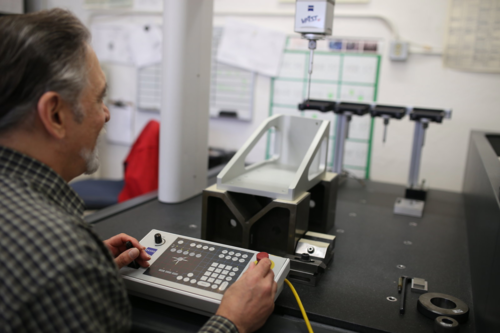“Turnkey” is a term used to describe any situation where the end customer receives a product that is fully ready to use or distribute. Manufacturing is no different, and turnkey solutions can cover every aspect of product development and production, from design to procurement and final assembly.
Read MoreIf precision machining is only one aspect of your overall manufacturing needs, you should consider partnering with a contract manufacturer for more comprehensive support. This type of turnkey approach can accelerate the path from prototype to full volume production, or eliminate the need for manufacturing capacity altogether.
Read MoreA major issue that companies face when doing business internationally is whether or not to outsource some of their manufacturing needs to a third party.
More and more businesses, including Apple, Adidas, Hewlett-Packard, and Shell, are outsourcing manufacturing to third-party companies. Moving operations overseas is an enormous undertaking, and outsourcing can remove the bulk of this burden from manufacturers. However, such a significant decision requires careful consideration of several important factors.
Read MoreFinding the right automation equipment manufacturer will help your business boost productivity and increase efficiency across operations.
Read MoreMedical device contract manufacturing provides medical device manufacturers with access to medical devices without adding significant overhead or taking up valuable resources.
Every business wants to grow, but with business growth and expansion comes a multitude of new challenges. While it may seem simpler to outsource many of these new challenges, there are some aspects that business owners are reluctant to contract out.
Read MoreAs a fundamental building block in all businesses, supply chains have been undergoing dramatic changes over the past few decades as a result of globalization and advances in technology. Effective supply chain management has increased in importance for this reason and is crucial to business success whatever the industry.
Read MoreIndustrial robots were first invented in the 1960s, and the company General Motors used the first one. According to Mike Wilson, author of Implementation of Robot Systems, there were over 2 million robots installed in different industrial sectors in 2015. This number has increased as more and more manufacturers introduce robotic systems integration into their production lines. It’s one of the latest technologies, dubbed the future of manufacturing.
Read More







